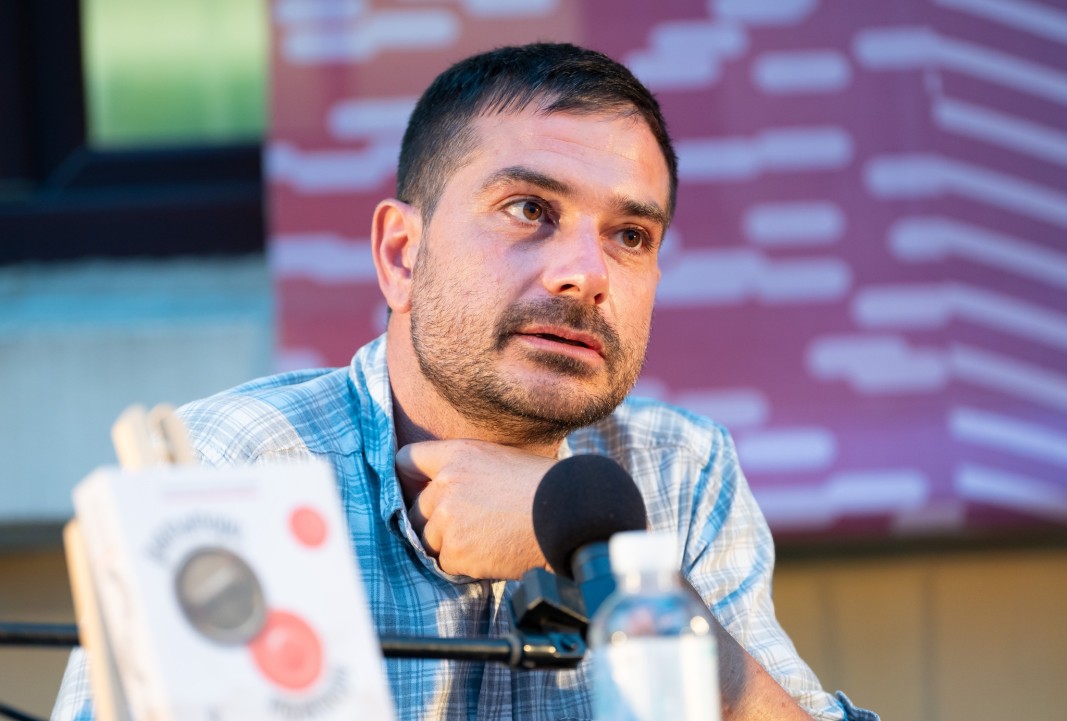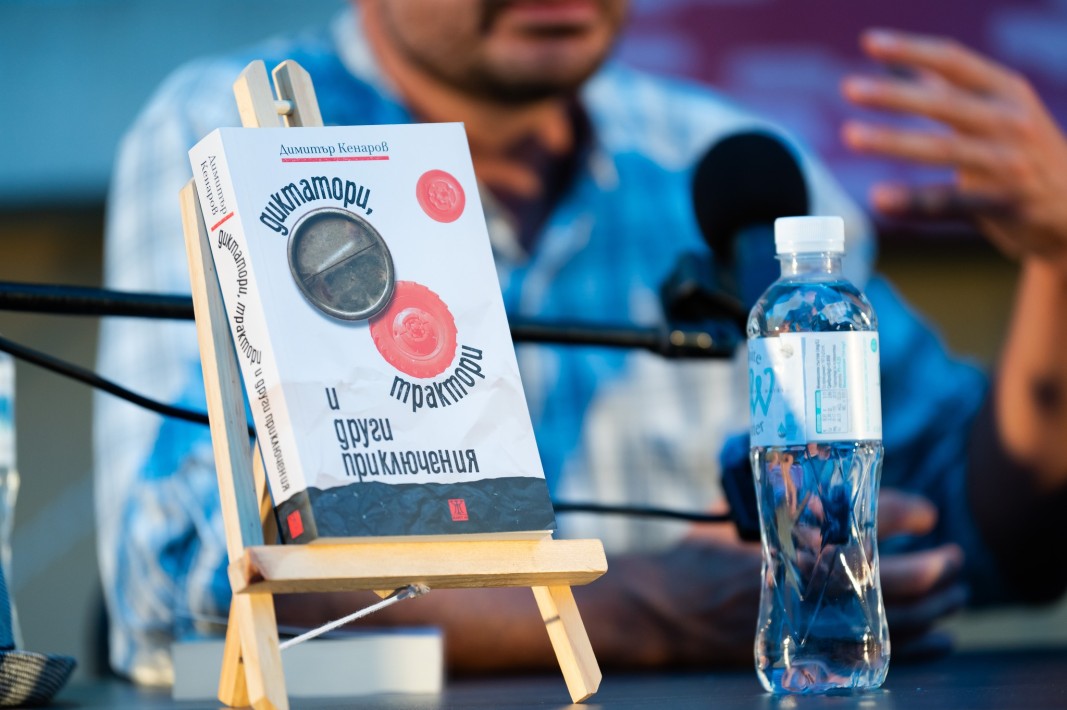“Life was better under Todor Zhivkov,” says an older man whom I meet in the street; many share his nostalgia for the former Communist dictator. “We didn’t have rights back then, but we had work. Now we have rights, but you can’t feed your family on freedom.” - this excerpt is from the latest book by Dimiter Kenarov, a well-known Bulgarian journalist, who has been a correspondent for English-language journals for years. The topics in his book "Dictators, Tractors and Other Adventures", published this year, have been taken from real life events during his travels to various countries from the Balkans, to Ukraine in the year of the annexation of Crimea, and to Iraq after the fall of the dictatorial regime there. Dimiter Kenarov says that wherever he travels, he tries to tell real stories through the means of literature, but each topic requires its own form, and this is the key to making it interesting for the reader.
For a long time, the young journalist was not tempted by literature, but he started reading a lot in university. He went to the USA, where he graduated with a degree in "American and Russian literature", but even then he stayed away from writing. However, a friend of his, the editor-in-chief of the Virginia Quarterly Review (VQR), one of the most prestigious journals for international reporting and literary journalism in the United States, asked him to write an article on the occasion of Milosevic's death in 2006. Kenarov took up the task and went to Serbia.

In his text "Serbia After the Death of Milosevic", Dimiter Kenarov, as a bystander, relays the words of two young women he meets on the train from Sofia to Belgrade. Their words are indicative of the mood of the people of Eastern Europe after the fall of the Iron Curtain and especially after the fall of the regime in Serbia: "Only my grandmother and my grandfather cried. His death didn’t touch me at all. My life didn’t change with his death, nothing changed,” a young woman says. “We’re still just as poor and don’t have regular jobs," the other adds, saying that nostalgia for Yugoslavia is due to the relatively high Yugoslav salaries and the possibility to travel everywhere without visas.
A curious fact about Dimiter Kenarov's book is that the texts were written in English and now they are published as a collection in Bulgarian with translator Angel Igov. In fact, this is not the only author who writes in a foreign language and then the works are translated in their homeland. "This to a large extent helps a person see things as a bystander, it is helpful to distance oneself from the events," Dimiter Kenarov says in an interview with Radio Bulgaria:

"We have collected texts that I wrote for the American journal in this book in Bulgarian and I hope that the reader will discover something new for themselves. When I go to a certain place, I go there with a certain purpose, for example, to write about the gold mining there, about the struggle of environmentalists in the last days of the Iraq war, etc. I always have some goal that attracts me and that is why I never go for the local sights but always look for the hidden sides of this world, even for things unknown to the local people. I let the characters speak for themselves and in the end the reader makes their own judgement."

English publication: Al. Markov
Photos: BTA, Facebook/Apollonia Festival of Arts
Sofia is the third city to host the sixth edition of the OKO International Ethnographic Film Festival , after the Ukrainian capital Kyiv and the city of Bolgrad were its hosts from September 5 to 14. The OKO film festival has a mission - to..
"A book filled with lots of humour, but also truths that can be painful" - Peter Georgiev Ray opens the curtain on his new novel "The Day My Virginity Was Taken." The premiere will take place on October 6 at Gallery Bulgari in Sofia...
More than 30 galleries and artist collectives from 12 countries will showcase the work of emerging and established artists at Sofia Art Fair 2025. The second edition of this contemporary art forum will take place from 2 to 5 October at Sofia Tech Park...
Sofia is the third city to host the sixth edition of the OKO International Ethnographic Film Festival , after the Ukrainian capital Kyiv and the city..
More than 30 galleries and artist collectives from 12 countries will showcase the work of emerging and established artists at Sofia Art Fair 2025. The..
"A book filled with lots of humour, but also truths that can be painful" - Peter Georgiev Ray opens the curtain on his new novel "The..

+359 2 9336 661
